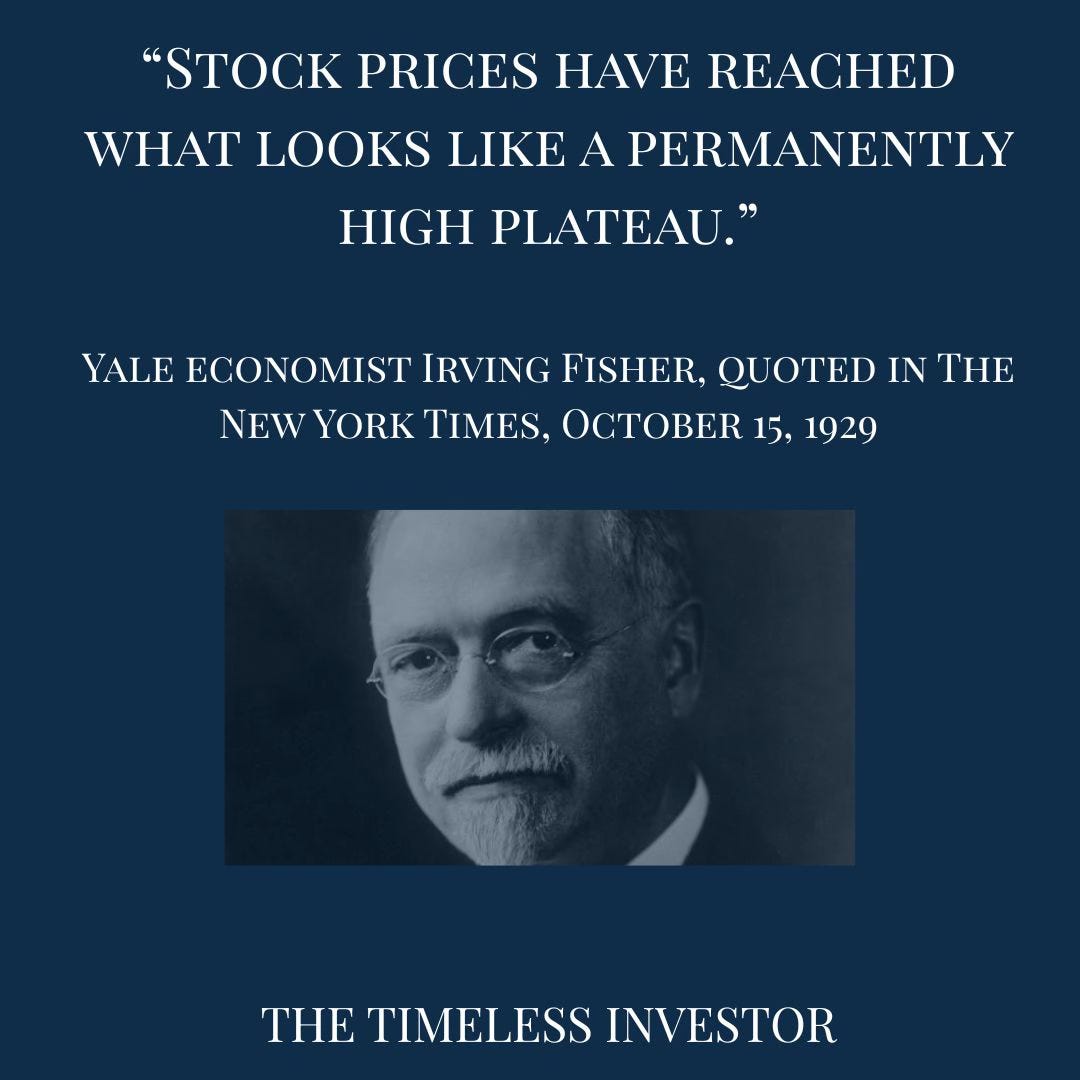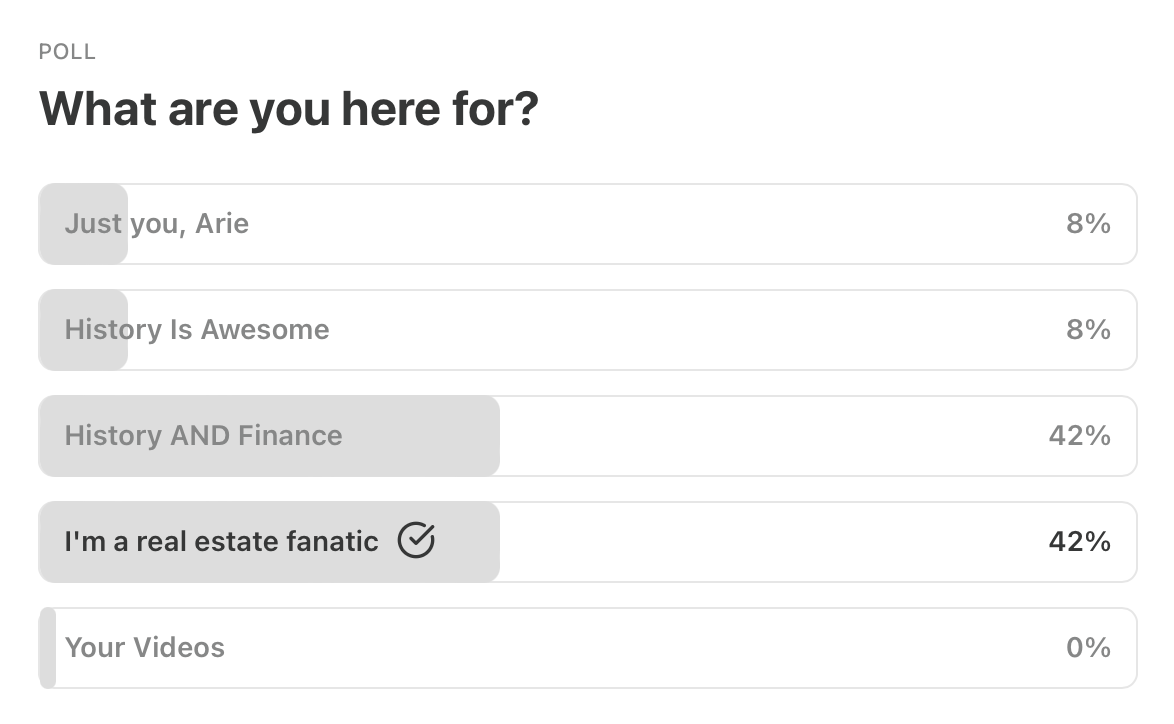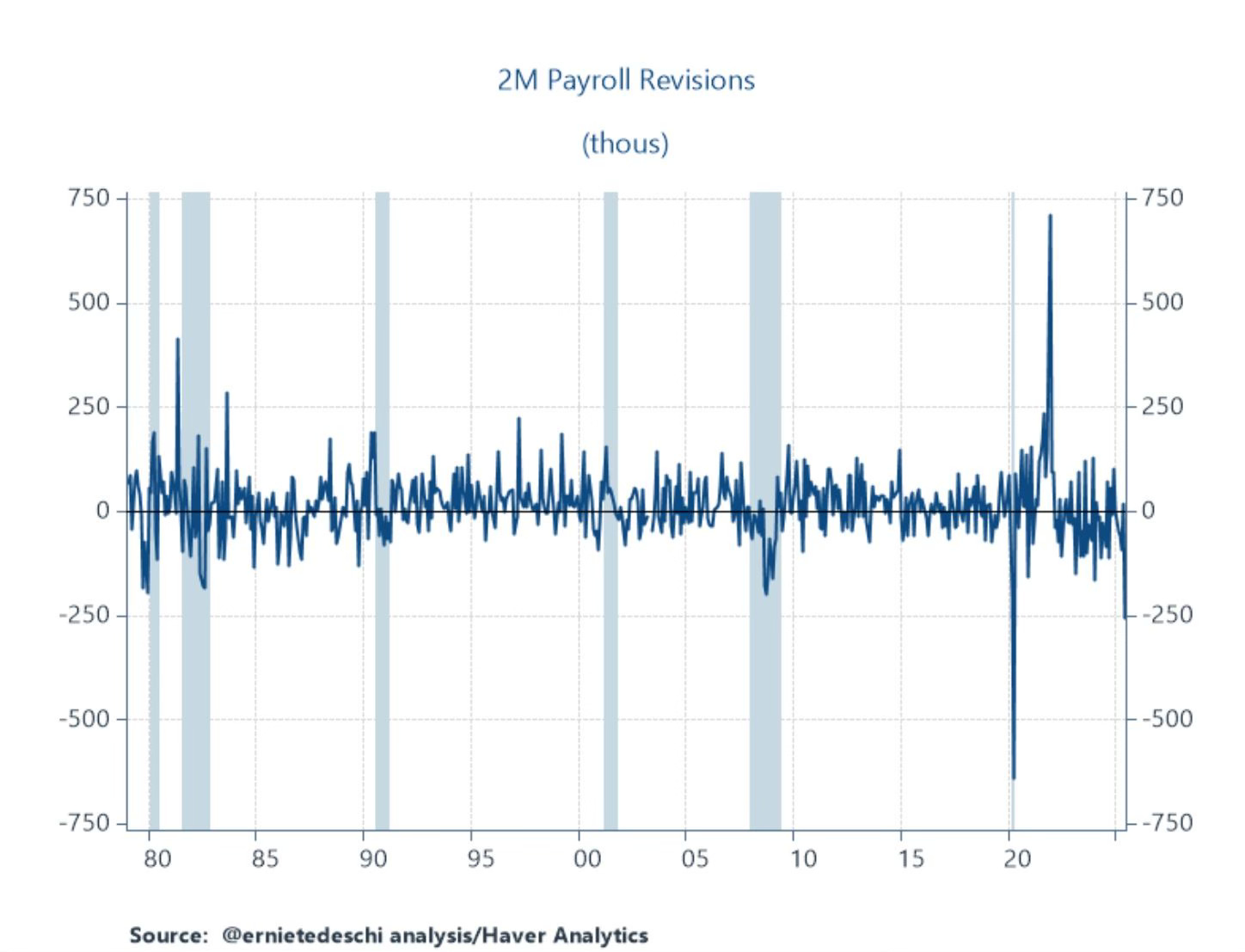When the Data Lies
How 258,000 missing jobs expose the recency bias trap—plus Florida's swamp king and Portland's contrarian bet
When yesterday's trends become tomorrow's trap—plus the employment data that changes everything
Hello Timeless Investors,
This week, reality came knocking. Hard. The Bureau of Labor Statistics dropped a bombshell that rewrote the economic narrative of the past three months, while our exploration of behavioral finance revealed why investors consistently fall for the same psychological traps. From Henry Flagler's Florida empire to today's employment illusions, the theme is clear: what seems obvious in the moment often proves dangerously wrong in hindsight.
Also - I know you’re all curious about last week’s poll results. And don’t worry - I don’t intend to poll you to death.
I appreciate the feedback - the results of this poll confirm that what we’re producing content-wise is a good fit for our audience.
I want to add that we are looking for exceptional guests for The Timeless Investor Show. Given the subject matter, I’m primarily looking for long-term investors who have been in the business for at least one, if not three, cycles. It doesn’t have to be 53 years like Ron Danz, but certainly less than 10 years is not a fit at this time.
If you or anybody in your network would be interested in sharing their insights - and by the way, this is not restricted to just real estate - then please reach out directly. All investors have unique insights to share.
As always, grateful to share these insights with you. Here are your five timeless updates:
Mind Over Market: The Recency Bias Trap
Why Yesterday's Trends Become Tomorrow's Disasters

This week's behavioral finance deep dive tackles one of the most insidious biases in investing: recency bias—our tendency to overweight recent events when making decisions about the future.
The pattern is predictable:
2006: "Housing always goes up" (based on five years of gains)
2021: "Remote work changed everything forever" (based on two years of pandemic behavior)
2022: "Sunbelt migration is permanent" (based on three years of population flows)
How it shows up in real estate:
Underwriting with straight-line assumptions based on the last few years of performance
Market selection bias toward recently hot markets while avoiding recently cold ones
Financing decisions based on recent rate environments rather than long-term cycles
The antidote: Build systems that force you to look beyond the immediate past. Historical context isn't just intellectual exercise—it's risk management.
Key insight: The most dangerous phrase in investing isn't "this time is different." It's "this trend will continue."
Read the full analysis: Recency Bias: Forgetting the Past, Paying for the Present
New Podcast: Henry Flagler's Florida Empire
How One Man Built an Entire State from Swampland
This week's podcast explores one of history's most audacious development projects: Henry Flagler's transformation of Florida from malaria-infested swampland into America's playground.
Flagler's revolutionary approach:
Vertical integration: Owned the railroads, hotels, utilities, and land development
Infrastructure-first mindset: Built transportation before demand existed
Patient capital: Spent decades building systems before expecting returns
Vision at scale: Saw Florida's potential when others saw only swamps and mosquitoes
Modern lessons:
Control your inputs: Flagler succeeded because he controlled every element of the guest experience
Build the roads first: Infrastructure investment creates value, not the other way around
Think in decades: Real wealth comes from playing longer games than your competition
And just because I got some heat due to Flagler’s initial wealth - how about this? - overcoming pessimism, naysayers and newspapers prognosticating your failure. Extrapolate that out to all the micro-pressures builders get today from everybody around them, and you can start to build a timeless lesson here.
The Florida paradox: While we love to mock Florida's boom-bust cycles, Flagler proved that visionary development can create lasting value even in the most unlikely places.
"I have always believed that the development of a country depends more upon transportation than upon any other one element." —Henry Flagler
Listen now: The Henry Flagler Empire - The Timeless Investor Show
The Employment Reality Check
Friday's BLS Revision Changes Everything
Friday's jobs report delivered a stunning reality check: the U.S. added 258,000 fewer jobs in May and June than initially reported. This isn't just a statistical revision—it reveals how badly we've been misreading the economy.
The shocking numbers:
May: Revised down from 144,000 to just 19,000 jobs added
June: Revised down from 147,000 to just 14,000 jobs added
July: Only 73,000 jobs added (well below 100,000 estimate)
Three-month total: Just 106,000 jobs added vs. initial reports of 364,000
What this means:
Job growth has averaged 35,000/month over the past three months (not the 100,000+ initially reported)
The unemployment rate rose to 4.2% in July
Private sector hiring has hit a wall according to Bankrate analysis
Market implications:
Fed rate cuts now more likely in September (markets pricing this in)
Real estate distress may accelerate as employment weaknesses emerge
Consumer spending pressure building as job market weakens
Personal observation: This aligns with anecdotal evidence I've been seeing from managing our portfolio. We have seen:
Rising Delinquency, confirmed in our portfolio but also in conversation with other operators
Slower leasing operations - manifesting a lot in difficulty renting studios in particular. Now you might say - shouldn’t studios perform well? From previous downturns, though, I feel that downturns result in more roommate situations, which actually harm studios
More anecdotal feedback on job losses among residents, and certainly among people I know
Bottom line: It’s an interesting spot to be in as a real estate operator. What’s worse? Rising interest rates or rising unemployment? Neither is good; I’d argue that rates are a bigger problem for legacy deals right now. On a go-forward basis, I believe this creates a window of opportunity to acquire buildings at lower rates and depressed pricing.
Coming Monday: The Operations Playbook
Lessons from the Trenches
Next week's podcast episode dives deep into the operational reality of building a real estate business. After years of managing 500+ units across multiple markets, we're sharing the hard-won lessons that don't make it into the glossy investor presentations.
Topics we'll cover:
Systems that scale vs. systems that break under pressure
The hidden costs that destroy deal returns
Management company dynamics and how to maintain control without micromanaging
Cash flow reality vs. underwriting fantasy
Team building in a distributed asset class
Why this matters: Most real estate education focuses on deal finding and financing. But operations—the unsexy, day-to-day execution—is where fortunes are made or lost. This episode is our playbook for turning spreadsheet projections into sustainable cash flow.
Preview insight: "The difference between a 12% IRR and an 18% IRR isn't usually the deal structure or the market timing. It's whether you can execute operationally for 60 months straight without major mistakes."
Portland Investment Thesis: Opportunity in Transition
Deep Dive on Our Pacific Northwest Focus
We've been quietly building a concentrated position in Portland, Oregon real estate. With several compelling deals in our pipeline, now seems like the right time to share our investment thesis.
Why Portland, why now:
Market dislocation creates opportunity: Portland has been written off by many investors due to recent political and social challenges. This creates pricing inefficiencies for patient capital.
Fundamental strengths remain intact:
Economic diversification: Nike, Intel, Columbia Sportswear, plus thriving tech/startup ecosystem
Geographic advantages: Pacific Northwest remains a net beneficiary of climate trends
Infrastructure quality: Excellent transportation, utilities, and urban planning
Demographic stability: Young, educated workforce with relatively affordable cost of living
Real estate fundamentals:
Below replacement cost pricing in many submarkets
Supply constraints due to regulatory environment (barriers to new construction)
Rental demand stability from employment diversity
Cash flow focus over speculative appreciation
Current pipeline: Three deals totaling 150+ units, all targeting 8%+ cash-on-cash returns from day one. Focus on value-add opportunities in established neighborhoods with strong fundamentals.
Risk management: Conservative leverage (65% max LTV), long-term fixed-rate debt, and diversification across property types and submarkets.
The contrarian bet: While others chase growth markets, we're focusing on fundamentally sound markets trading at discounts. Portland fits that thesis perfectly.
More details on specific opportunities available to qualified investors. Contact us directly for deal access.
Think well. Act wisely. Build something timeless.
Arie van Gemeren
Founder, The Timeless Investor
Managing Partner, Lombard Equities Group
P.S. - The employment revision story is a perfect example of recency bias in action. We built narratives around strong job growth based on incomplete data, then made investment decisions based on those narratives. Always question the data—especially when it tells you what you want to hear.
Connect with me:
LinkedIn: Arie van Gemeren
X/Twitter: @TimelessArie
Direct: arie@lombardequities.com





